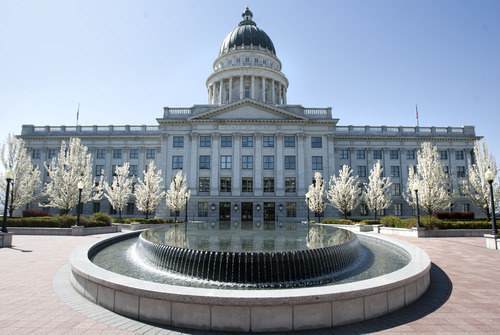This is an archived article that was published on sltrib.com in 2013, and information in the article may be outdated. It is provided only for personal research purposes and may not be reprinted.
Recently, Utah's Republican Central Committee has garnered attention for its attempts to reform and improve the neighborhood caucus experience. As political scientists interested in political participation, we applaud efforts to make the caucus experience friendlier to participants—shorter, more welcoming, less confusing, more efficient. Such changes could reduce the costs of participation, making the system easier for citizens to navigate.
However, any discussion of reform of the caucus and convention system in the state needs to attend to one other important value as well: representativeness. In our view, one crucial question that must be asked is this: Who is being represented by the process? All of Utah voters? Republican Party members? Or just a relatively small subset of Republicans? Different people will come to different conclusions about which group deserves representation, and having a debate about those different perspectives is healthy.
Setting aside the question of which group should be represented, we offer a very simple but important fact: Caucuses do not represent the views of the party at large (or the general population). When we examine the data both in Utah and across the nation, we find that those who participate in caucuses are not anything close to a good sample of their respective political parties.
Participants in caucuses and delegates to party conventions are not simply a smaller group of citizens. They also have quite different issue attitudes than those who take part in primaries or who vote in the general election.
Take Utah's 2010 Republican convention, for example. Research from BYU's Center for the Study of Elections and Democracy shows that convention delegates were neither demographically nor substantively representative of Republicans who participated in primaries and the general election that year. Convention delegates were far more likely to be male, to label themselves "strong" party members and to be active supporters of the tea party than Republican voters in the primary or general election. Their issue positions were also much more consistently conservative.
These patterns are not unique to Utah. In work recently published in The British Journal of Political Science, we demonstrate that in presidential contests, caucus voters are, on average, much more ideologically consistent in their issue positions than are primary voters. The average primary voter is not at the center of the spectrum either, but such voters tend to be center-left or center-right. Caucus-goers, on the other hand, tend to be much more ideologically extreme. In fact, in their issue attitudes, caucus attenders are indistinguishable from representatives currently serving in our polarized Congress.
Advocates of the caucus and convention system might well argue that other values should trump representativeness, values such as having a small group of people who know the candidates and the issues well or having the strongest partisans choose the nominee.
Those are important considerations, but there is likely a tradeoff between those values and representativeness. The people most likely to attend caucuses and the party conventions simply will not be representative of their party generally.
We are not arguing caucus-goers are inherently good or bad. There may be times when a strong, ideologically driven group is preferable to the less consistent positions of the sometimes mushy middle. But when we choose our nomination process, we are making a profound choice about whose views will be represented and whose will not. The caucus and convention system is simply not representative.
In highlighting the importance of representativeness, our motivation is not to advantage or disadvantage any particular candidate or group. When making decisions about electoral institutions, Utahns should think beyond the preferences of any one interest. Attending to representativeness means reflecting broadly about the characteristics of the institutions we use to select our leaders.
The fact is that participants in the caucus and convention system are not a representative sample of either Republicans or Democrats. As party leaders on both sides consider the alternatives, they simply must understand that caucuses are less representative—even of average party members—than are primaries.
Christopher F. Karpowitz and Jeremy C. Pope are associate professors of political science at Brigham Young University and are affiliated with BYU's Center for the Study of Elections and Democracy.



